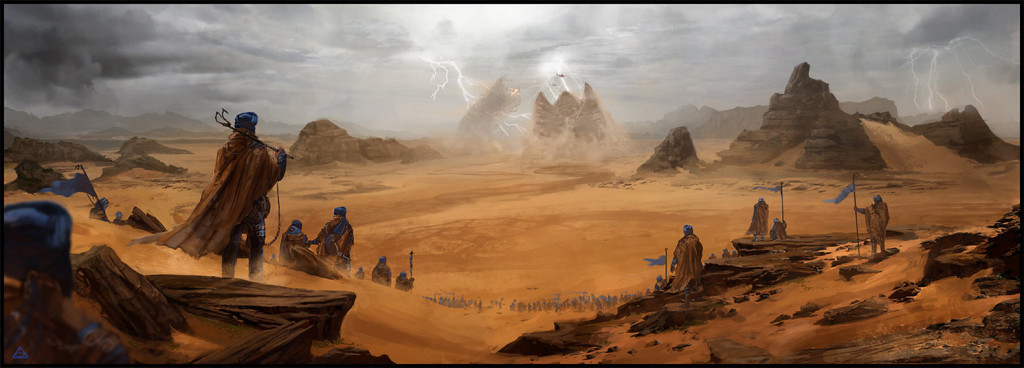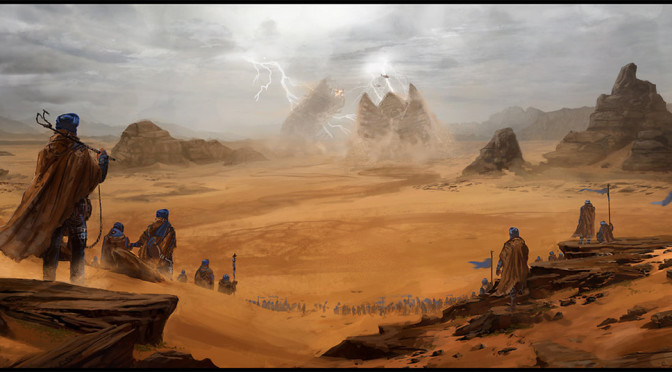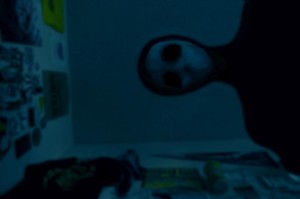Last night was the now famous supermoon eclipse. I woke up early to go outside and have a look. Quickly, like a lot of Greeks, my enthusiasm was quenched because of the cloudy sky. These September nights have been warm but cloudy and rainy. Switching from a Mediterranean climate to a tropical one? Check. At least it’s better than turning into Sahara, I suppose.
To my credit, I didn’t immediately give up, either. I sat there for 40 minutes or so, reading and underlining my morning pages from earlier in 2015. Alas, the clouds won that hopeless staring contest. I went back to bed and thought it would be a good idea taking advantage of waking up that early to take a shot at entering a WILD. Instead, I was welcomed with a bout of the worst sleep paralysis I can recall: when my body fell asleep, my consciousness didn’t, and I had hallucinations of a person walking in the apartment, into my room and around my bed. It was pitch black, so the hallucination was consistent, in that I couldn’t see him/her/it, only hear the footsteps. I had to endure this while unable to move any part of my body apart from my eyelids and their contents. All the while, the blood moon was setting behind the cloud cover. During sleep paralysis, no-one can hear you scream. You can’t scream….
Take a deep breath.
It could have been me who took this .gif. It’s a consoling thought.
Nevertheless, for all its photogenic glory, it has to be said that September 28th 2015 will not be remembered for its supermoon eclipse. It will go down as a small footnote in history that on the day NASA announced they found flowing water on Mars there had been a supermoon lunar eclipse less than twelve hours prior. It is a veritable milestone that would have me leaping for joy—if I was any proper kind of science/sci-fi/astronomy nerd to begin with. Instead, all I can think of, perhaps especially after almost half a year of constantly dealing with water as a human right and the current global state of affairs, is how we should be sorting out our shit on Earth first before starting to even think about colonizing other worlds.
Don’t get me wrong, I too get terribly annoyed when other people generally show this kind of flamboyant lack of interest in the vastness of the Universe and the amazing advances in our apparent knowledge of the world. It’s usually such people who shun video games because they’re capitalist toys and refuse to see how they can work wonderfully to promote education or cultural awareness. Similarly, they show open contempt for science fiction as a genre, no matter how eye-opening, poetic or important it might be. They’re not interested to know that Dune, for example, was one of the first books bar none to speak about ecology and sustainability when it was published 50 years ago. No, it’s science fiction. “We have real problems on Earth. Sci-fi is for comfortable middle-class white nerds”, they say, or seem to imply. My very own father told me off when I tried to explain to him the virtues of The Dispossessed. As I was saying, under normal circumstances I get borderline offended by these reactions; at this very moment, I can sort of see where they’re coming from.

A lot of the excitement surrounding the discovery of flowing water on Mars has to do with the fantasy of modernity, the wet dream of boundless progress, the Promethean achievement of humankind founding an extraterrestrial colony. While science fiction wouldn’t have you believe it, especially with the likes of Interstellar framing the popular imagination, we’re far, far from thinking about humanity as a separate entity from our home planet. There’s no reason to believe that without Earth we could survive for any length of time. I don’t think we would want to, either. But we’re obviously not taking care of our planet as one would take care of their home. In fact, we couldn’t do much worse if we were actively trying to destroy it.
Colonising Mars as our last hope for survival after we’ve made Earth unfit for humans and broad swaths of other types of life, too, is not something I’m going to support. We’ve been making our bed, we should be honourable enough to sleep in it too—once and for all, if it comes to that. If we can’t live as part of the great ecosystem, we don’t deserve to survive. I would use the cancer analogy, namely that us out-surviving the Earth would be like cancer cells out-surviving the cancer patient who died because of them, but on second thought the analogy wouldn’t be exactly right, as it’s not really possible to kill the Earth the same way a human can die of cancer. Still, if not kill it, we just might see our Earth wither away into a wasteland where it will take many thousands or millions of years for new forms of life to take advantage of the mess we’ll have left behind—if we don’t end up like Venus, that is.

I know you might say that some ideas born out of past science fiction turned out to be possible. After all, “we” (i.e. well-funded Americans) did go to the Moon (don’t take my word for it though) and that was just four years after Dune was released and a single year after 2001: A Space Odyssey did. Back then, people were saying that we’d definitely have at least a couple of bases up there by the turn of the millennium. But here we are, the turn of the millennium’s already fifteen years behind us and I’m not seeing any bright lights up there. So what happened? Could it be that there are some hard limits to our malignant growth? I would argue that yes, and plenty of them, as much as we like to pretend they don’t matter.
Next to all this, I’m secretly hoping for disclosure of long-standing alien contact, that moment that will change everything, like Naomi Klein says, only for real. Maybe in that scenario we will be taught how to build a viable multi-planetary civilization together with them and cross the stars that way. But on our own? Now? We’d probably destroy the colony the moment they were unable to pay off their debts to Earth, or make them privatise their water company, like many people were quick to joke about with today’s discovery on Twitter and Facebook.
Riding Light from Alphonse Swinehart on Vimeo.
But all said and done, I see videos like the one above, where you get to do a to-scale virtual tour of our solar system at the speed of light, and go right back to marvelling at how far we’ve come. Suddenly it hits me how difficult, how amazing it is sending missions to moist rocks or giant chewy-cored balloons so far away from here, redefining what is possible.
What vocabulary would a space-faring civilization like in Stellaris develop to describe the vastness of space?
I want this game very bad. Very very bad.












